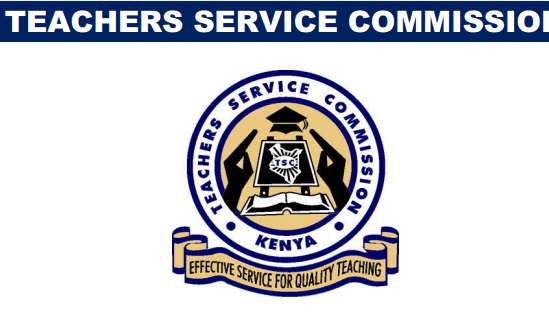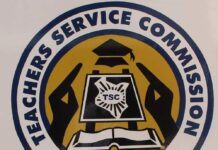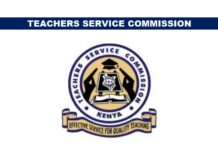
Despite investing heavily to acquire higher academic papers,a section of primary school teachers have for a long time suffered.
Since January 2014, the Teachers Service Commission (TSC) ended automatic promotion for primary and secondary school teachers who upgraded their certificates.
When Jubilee government took power, it immediately instructed all government departments to halt promotions based on academic papers. TSC was not excluded.
However the Commission adopted a more rewarding scheme for teachers. It dropped Schemes of Service (SoS) which guaranteed automatic promotion for teachers who furthered their studies.
Instead TSC replaced SoS with Career Progression Guidelines (CPG) for teachers. According to TSC CEO Nancy Macharia, the Commission is concerned with teacher performance than mere academic papers.
This explains why from the year 2016 the Commission has put more effort in improving and training teachers on TPAD (Teacher Performance Appraisal and Development).
The teacher’s employer has repeatedly said CPG is superior to SoS and that it has ended job stagnation for teachers.
However the outcry from Diploma teachers and teachers who have upgraded their certificates has raised eyebrows on effectiveness of CPG.
Some of the primary school teachers who were affected by replacement of SoS with CPG are;
1) Diploma and Degree in Special Needs Education
2) Diploma and Degree in Early Childhood Development Education
3) Diploma and Degree in Education (Primary option)
4) Diploma in Education (Secondary option)
Despite submitting their academic certificates for promotion, the only thing the teachers have received from TSC is a thank you note together with acknowledgment letters.
The teachers use their degree certificates only when TSC advertises for administrative promotional vacancies.
In September 2021 advert for promotion of teachers to administrative grades, TSC allowed teachers with Bachelors in Special Needs Education to apply for the advertised vacancies.
The Commission has however continued to promote teachers who studied degree secondary option by deploying them to teach in secondary schools.
In addition to having degree secondary option, the deployed teachers must also have at least C+ in KCSE and at least C+ in the teaching subjects.
TSC deployed a total 1,000 p1 graduate teachers to teach in high school this financial year (2021 – 2022).
TSC said the teachers will help in supporting the 100 percent transition from primary to secondary schools
TSC had advertised 1,000 deployment posts in 2019 and another 1,000 in September last year.
The Commission advertised 1,000 deployment posts in July this year for PTE certificate holders to apply.
Those deployed started at job grade C2 at salary scale 34,955 per month and will move to job grade C3 upon completion of three years as stipulated in Career Progression Guidelines for teachers (CPG).
However, unknown to many there is a section of primary school teachers who joined universities to study degree secondary option but they only had a C (plain) mean grade in their KCSE exams.
During their time universities including Nairobi, Kenyatta, Pwani and Mount Kenya registered and offered lectures to students with mean grade C (plain) in KCSE so long as they had a PTE certificate.
Some lecturers have faulted the teachers for getting duped by going direct for degree instead of first taking a diploma.
“A PTE certificate has never been a requirement for anyone joining university. What is there is for one to go through a diploma first if they don’t qualify to do degree direct.” says Charles Kyengo, a part time lecturer in Kenya Methodist University.
Despite being duped in their studies, there is some light at the end of the tunnel for these teachers.
The Commission sources say there are plans to deploy thousands of teachers from primary schools to junior secondary schools by 2023.
Among those to be priotised in this plan are primary school teachers with degree secondary option including those with mean grade C (plain) in KCSE.
Initially TSC had outlined a plan to deploy 36,000 P1 teachers to teach in junior secondary whe its officials were invited in Parliament to respond to level of preparedness ahead of 2023 CBC roll out.
In a report titled Status Report on Teacher Preparedness for Competence Based Curriculum Implementation which was presented before the Parliamentary Committee on Education, TSC had said that it will deploy P1 teachers who hold Diplomas, Higher Diplomas, under graduate Degrees, Post-graduate Diplomas, Masters and PHDs to teach at junior secondary schools (JSS).
TSC CEO Nancy Macharia, during a press in Hilton Hotel in Nairobi, said they will also train high school teachers to handle Grade 7, 8 and 9 which are the junior secondary classes.
She said at least 60,000 high school teachers will, in March and April next year, be trained in preparation for the rollout of junior secondary.
TSC will also train primary school teachers who will handle Grade Six pupils in December 2021.
In 2023 CBC will spill over to junior secondary. Junior secondary school will comprise of Grades 7, 8 and 9.
In 2023, pioneer learners under the new 2-6-3-3-3 Competency Based Curriculum (CBC) system will transition to junior secondary school after sitting the Grade Six national examinations.
The Kenya Institute of Curriculum Development (KICD) said curriculum designs from Grade One to Ten are ready.
President Uhuru Kenyatta, during the Mashujaa day celebrations in Kirinyaga, made the announcement that the government will set aside sh. 8 billion for constructing 10,000 junior secondary classes.
“Ministry of Education, jointly with Ministry of Interior and the National Treasury, shall establish a framework for the construction of the over 10,000 classrooms needed to provide the additional learning space required for the one million new students set to join junior secondary,” said Uhuru.
Already the construction of the classes has kicked off. Interior’s CS Fred Matiang’i said Chiefs will supervise the construction of 11,600 new classrooms in schools countrywide.
According to Education Cabinet Secretary George Magoha and Interior’s Fred Matiang’i, the classes to be constructed in the first phase will accommodate learners transiting from primary to junior secondary schools.
Dr Matiang’i told officers to start preparing for the projects as the classrooms should be ready to accommodate learners by 2023.
Education cabinet Secretary George Magoha said that the National Treasury has released Sh4 billion to commence the first phase of the CBC school infrastructure development programme.
Magoha said the money, in addition to another Sh1.2 billion from the Ministry of Education’s infrastructure fund, will be spent on the construction of 6,500 classrooms in 6,371 secondary schools across the country.
“This programme seeks to address the classroom deficit in our public secondary schools to allow for a smooth transition of CBC Grade 6 learners to Junior Secondary in January 2023,” said Magoha.









